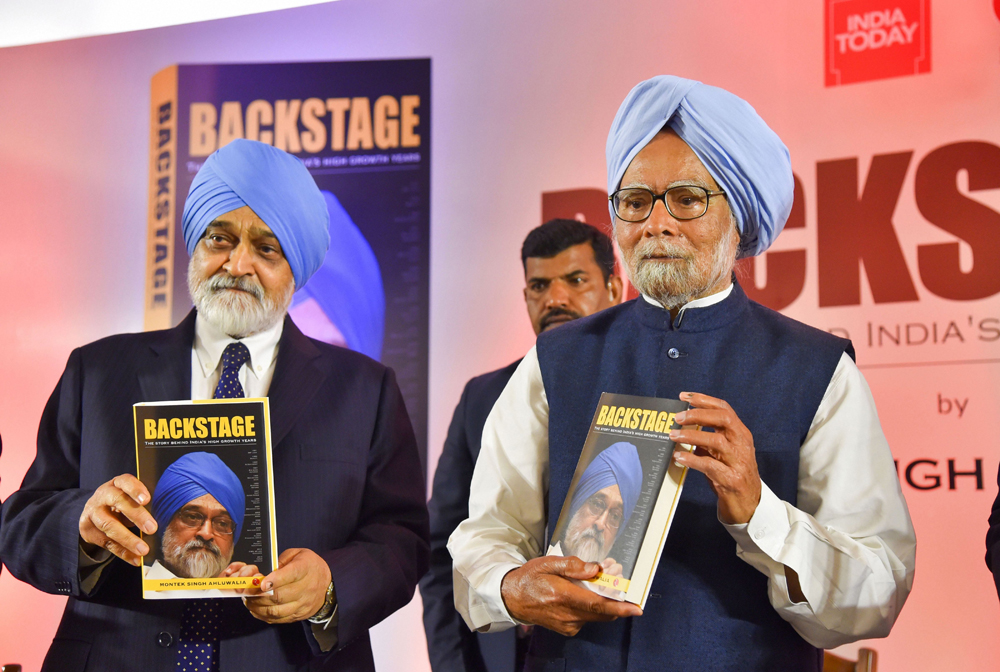Former Prime Minister Manmohan Singh said on Wednesday that the Narendra Modi government does not acknowledge the word “slowdown” and the danger is that if problems are not recognised, corrective action is unlikely.
Speaking at the launch of Montek Singh Ahluwalia’s book, Backstage: The Story behind India’s High Growth Years, Singh said the former deputy chairperson of the Planning Commission had written about the good and the weak points of the UPA government.
“I think these issues will be debated and should be debated because we have a government that does not acknowledge that there is such a word as slowdown. I think this is not good for our country,” Singh said. “If you do not recognise the problems that you face, you are not likely to find credible answers to take corrective action. That is the real danger.”
Singh also said that Ahluwalia had “pointed out that contrary to what the ruling group may say, today the $5 trillion economy by 2024-25 is wishful thinking” and that “there is no reason to expect that farmers’ income will be doubled” in three years.
“At the same time, he (Ahluwalia) said we must work for high rate of growth and that 8 per cent growth rate is a feasible proposition but it requires rethinking about the role of fiscal policy. There is a need for tax reforms in the country in a bolder way,” Singh said.
Referring to the UPA years, the former Prime Minister said: “There will be question marks, there should be question marks and I hope there will be solid debate that will produce a better programme for carrying out the reform process further.”
“I do believe that there is need for re-thinking of the reform process afresh. Second generation of reforms requires new pathways and these new pathways can emerge only with solid discussion of the alternatives,” he said.
Singh said he was grateful to former Prime Minister P.V. Narasimha Rao, former finance minister P. Chidambaram and Ahluwalia for supporting his liberalisation of the economy in the 1990s.
“When the reform period is written about, I don’t know what the official narrative will be, but I for one know, it was a very tortuous path because the dominant opinion then was not in favour of reforms,” Singh said.
In the business community, there was the Bombay Club that was formed to see that India does not move on the path of liberalisation, he said, recalling that he knew there was limited time because of dwindling reserves.
“I had to tell President S. Venkataraman that ‘Mr President, if we wait for a vote of confidence, I may have nothing to sell to the world about India’s story’,” said Singh, who had unveiled the reforms as finance minister in 1991.
“I am very grateful to Prime Minister Rao that he stood by me. But I am also very grateful to Montek, to Chidambaramji, to the then governor and deputy governor of the RBI who stood by me firmly so that we could carry out the reform process in the manner we wanted to,” he said.










